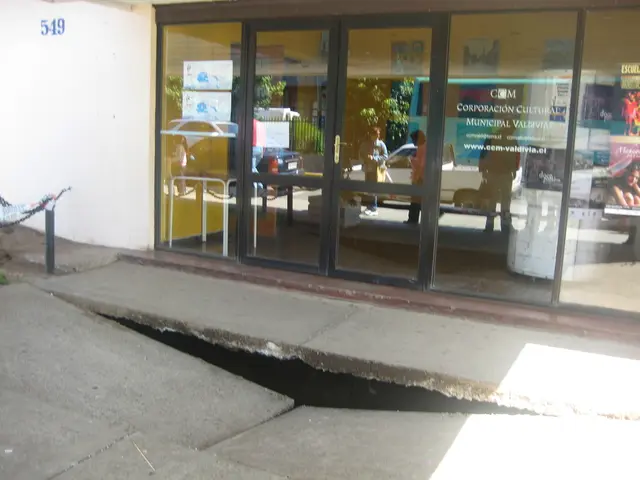A Call for Billions in Federal Funding for Job Seekers' Allowance and Long-Term Care Insurance
Federal Health Minister Requests One Billion Dollars from the National Government
New Health Minister Nina Warken is urging the government to inject billions into the ailing health insurance and long-term care sectors. Financial gaps in healthcare and long-term care insurance are mounting due to the federal government's missed contributions towards the job seekers' allowance and COVID-19 debts. Warken advises against asking contributors first before addressing these issues.
Health insurance companies are teetering on the brink as premium hikes loom larger. Warken is adamant about preventing further premium increases with an emergency package. "We'll determine the package collaboratively with the entire government," she said. The situation of the health insurance companies, according to Warken, is critical despite the coalition agreement's commitment to establishing a commission for sustainable health insurance financing to deliver results in two years.
Warken has also called for the federal government to settle its outstanding bills amounting to billions of euros towards long-term care insurance. These funds are intended to compensate for pandemic-related long-term care expenses such as testing and care protection shields.
The health minister anticipates pressing problems in long-term care insurance. Temporary measures to stabilize long-term care funding are imperative, she stressed, until the fundamental reforms can be implemented. The federal-state working group set up for this purpose is expected to deliver results swiftly, but meaningful action is still months away.
During the coalition negotiations between the Union and SPD, the health working group had proposed additional funding for Job Seekers' Allowance and settling COVID-19 debts. However, these items were omitted from the final agreement.
In the current political climate, government budget cuts are prevalent rather than increased funding. For instance, the budget allocated for job centers is anticipated to decrease by €1.6 billion for 2025, with an additional €900 million cut from funds allocated for vocational training and rehabilitation services for social welfare recipients. This totals approximately €2.6 billion in cuts to job centers during a time of rising unemployment figures [4].
Immigration reforms in 2025 aim to address labor shortages by easing visa requirements for skilled workers and introducing a points-based Opportunity Card system. While these measures may have indirect effects on employment support demands, they do not suggest an increase in federal funding for unemployment benefits [3][5].
In essence, the federal government is not increasing funding towards unemployment-related allowances and job center funding but rather decreasing it, while no direct demands or status updates for additional funding for Long-term Care Insurance are currently available [4].
- The health minister has emphasized the need for an emergency package to prevent further premium increases in health insurance companies, which are currently teetering due to financial gaps in healthcare and long-term care insurance resulting from the federal government's missed contributions towards the job seekers' allowance and COVID-19 debts.
- Amidst calls for billions in federal funding for job seekers' allowance and long-term care insurance, the federal government appears to be pursuing budget cuts instead, as shown by the anticipated decrease of €2.6 billion in job center funding for 2025, while no direct demands or status updates for additional funding for long-term care insurance have been made available.








